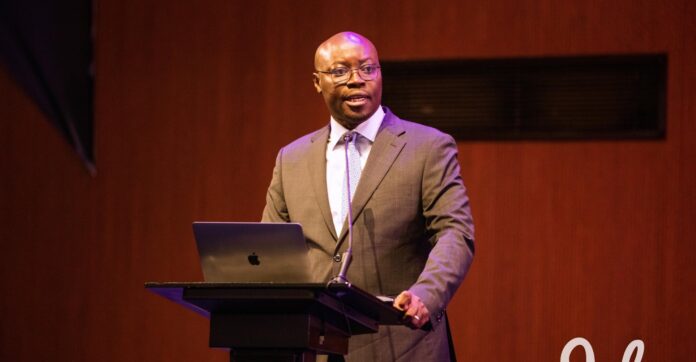By Joshua AMLANU & Ebenezer NJOKU
Government is reaffirming its commitment to fair treatment for all external creditors as it nears the final stage of its debt restructuring process, which is aimed at restoring financial stability and investor confidence after the crushing defaults of 2022.
In a statement on Wednesday, the Ministry of Finance said it continues to make “good progress” in negotiations with remaining creditors within the debt restructuring perimeter.
Government stressed that it has not extended preferential terms to any creditor group, aligning with the G20 Common Framework’s principle of Comparability of Treatment – a key condition for continued multilateral support.
“We have strictly applied provisions in the Memorandum of Understanding with our official creditors – and in particular have continued to remain in arrears with all external creditors included in the debt restructuring perimeter. No creditor has been treated preferentially,” a portion of the statement read.
The restructuring process, now 97 percent complete, follows the historic default on external debt triggered by rising borrowing costs, a depreciating currency and a collapse in revenue during the COVID-19 pandemic and Russia-Ukraine conflict fallout as well as a subsequent downgrading of the nation’s debt, which triggered capital flight.
Government initiated a debt exchange programme covering over US$20billion in external liabilities to regain debt sustainability and unlock funding under a US$3billion Extended Credit Facility (ECF) from the International Monetary Fund (IMF).
Key to the process was a US$13billion Eurobond exchange concluded in under nine months. The deal secured 98 percent consent from bondholders – surpassing the 65 percent threshold required – and resulted in a 37 percent nominal haircut.
It also reduced the average coupon rate from over 8 percent to below 5 percent, substantially easing the interest burden and curing defaults on international bonds.
Officials say the deal has helped normalise the country’s standing with rating agencies and global capital markets. The successful outcome was widely seen as a key moment in the country’s economic reset and a potential model for other heavily indebted developing economies.
While most of the restructuring is now finalised, about 3 percent -primarily commercial loans – remains under negotiation, as reiterated by President John Dramani Mahama during a Presidential panel discussion at the 60th Annual Meeting of the Africa Development Bank (AfDB) in Abidjan, Cotê d’Ivoire.
Speaking of the process, he said: “It brought the quantum of our debt, that is the size, down; but it also stretched the repayment period, which brought us to about a 76 percent debt-to-GDP ratio. Since then, we are left with three percent of the debt as we covered 97 percent. It is left with some commercial creditors who hold about three percent of the debt; and once we do that, the entire process will be complete”.
He suggested that government is working to close the gap, with ongoing discussions centred on instruments that are more complex and less uniform than Eurobonds or bilateral loans.
The Finance Ministry said it remains “committed to achieving a fair and mutually beneficial resolution with all creditors” and expressed appreciation for the “forbearance, cooperation and support” of its international partners.
Ghana’s fiscal outlook has improved markedly, helped by better-than-expected revenue performance, a stronger cedi and tighter spending controls.
Government is targetting a debt-to-GDP ratio of between 55 percent and 58 percent by 2028, a goal officials believe is within reach well ahead of the IMF schedule.
If current trends hold, the nation is expected to reach a moderate risk of debt distress status by 2028 – a notable improvement from the high-risk classification it held during the peak of its crisis.
Still, analysts caution that the final stretch of creditor negotiations could pose challenges; particularly as legacy debts, especially in the electricity sub-sector, continue to weigh heavily on government’s intended expenditure. Any slippage in fiscal consolidation or delays in finalising the remaining restructuring agreements could weigh on investor sentiment.










